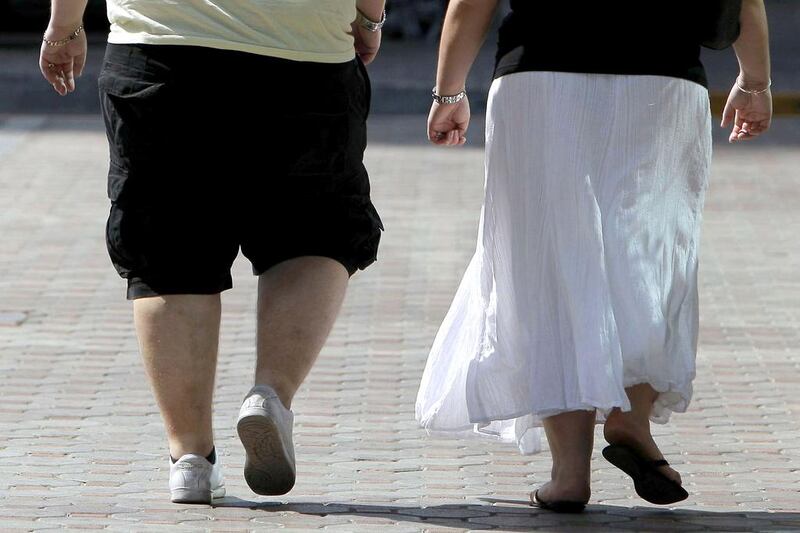Obese people in the UAE are reluctant to seek professional help because of the stigma surrounding their condition, putting them at risk of developing further health problems.
A Dubai doctor said people battling weight issues, particularly women, are instead taking the "easy way out" by turning to massage centres that promise weight loss or importing diet pills. Dr Rita Nawar, an endocrinologist who has worked in the UAE for 12 years, said a delay in receiving medical support meant overweight residents were likely to suffer from a faster onset of related diseases and conditions such as diabetes.
She said obesity was on the national agenda and awareness was rising, but called for more education among professionals, health authorities and the public.
"A person with obesity – especially ladies in the UAE culture – may treat obesity themselves but without saying out loud that they are doing it," Dr Nawar told The National at the European Congress on Obesity in Glasgow, Scotland, which ends on Wednesday.
“It is leading to a delay in seeking good professional help and it will increase the health burden from obesity.
“Many times I see a patient coming in for weight management only, but when we do testing they are diabetic already.”
There is “a little bit more awareness” of obesity in the UAE but the “stigma is still there and it needs a lot of work in order to change it”, she said.
Dr Nawar is a member of the steering committee at Action IO, a global survey exploring gaps in understanding between medical workers and overweight patients.
It researched attitudes in 11 countries, including the UAE and Saudi Arabia.
Results specific to individual countries are expected to be released in June.
In general, the survey found on average a six-year gap between overweight people noticing their increased weight and them seeking help from professionals.
It also found that seven out of 10 healthcare professionals thought obese people were not interested in losing weight, while 93 per cent of overweight people surveyed said they wanted to shed the extra kilograms.
According to a Gulf-focused diagram produced by Dr Nawar, 68 per cent of people in the UAE had a body mass index more than 25 and 32 per cent more than 30 – which would classify them as obese.
Other countries in the region fared worse, with 73 per cent of those surveyed in Kuwait having a BMI more than 25 and 38 per cent classified as obese.
Still, Dr Nawar said the future could be brighter for the treatment of obesity in the UAE.
“I feel hopeful because, for the past 12 years, I’ve been fighting against the current,” she said.
Colleagues were treating obesity as a chronic disease rather than simply referring patients to a dietitian, she said.
There was a move away from the simple guidance of moving more and eating less.
Dr Nawar is a founding member of The Weight Care Clinic, created in 2007 to tackle the increasing strain obesity was causing in Dubai.
In a speech at the conference yesterday, Dr Nawar mentioned several reasons for the increase in overweight people in the region. Among them was the influx of a western diet high in saturated fat, processed foods and sugar, and longer working hours leading to increasingly sedentary lifestyles.
Like many health workers, she also called for a new system that did not classify someone as obese for simply having a certain body mass index but also recognised being overweight as a chronic disease that needed treatment in the same way as “when you have high blood pressure”.







